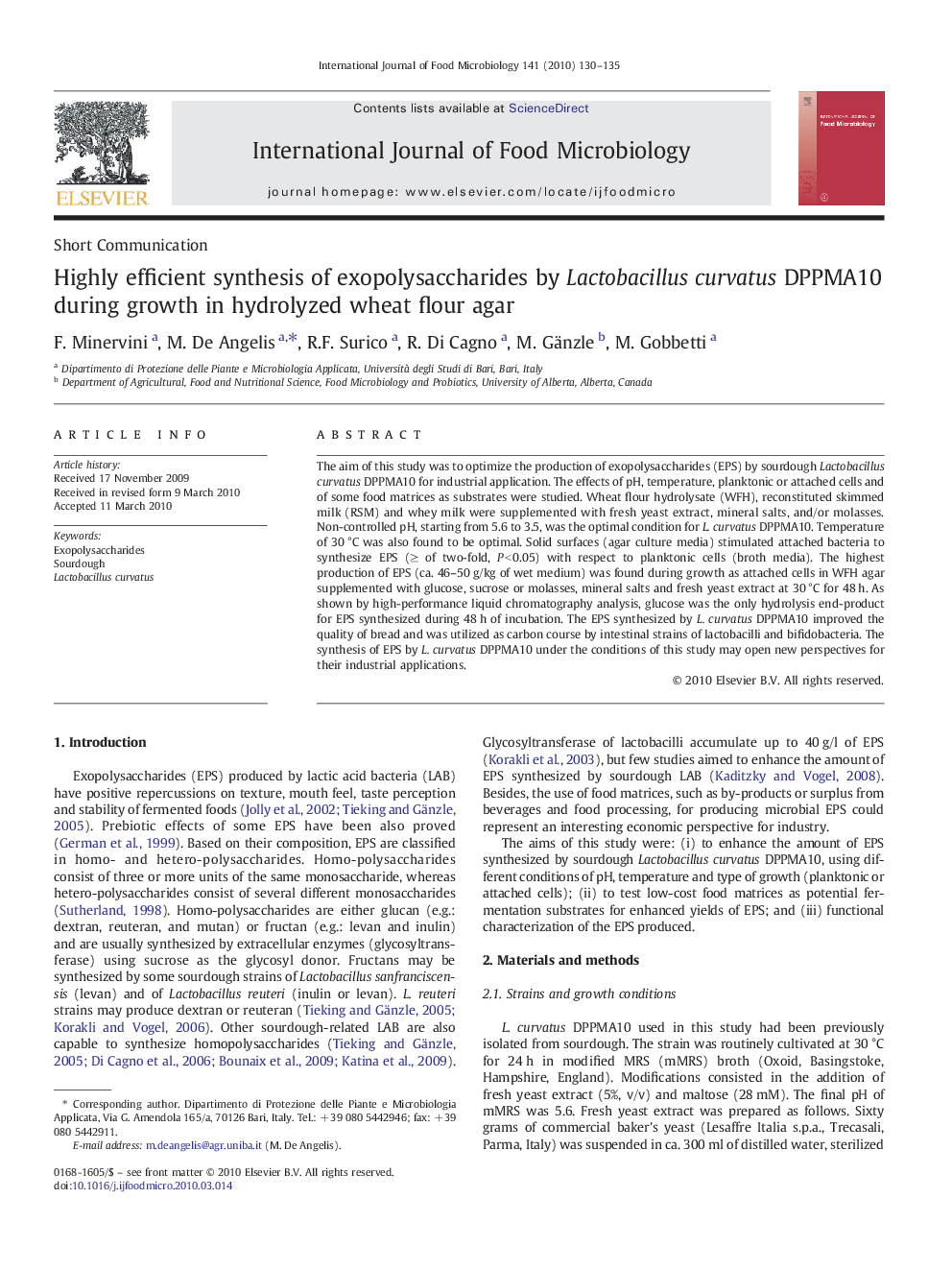| Article ID | Journal | Published Year | Pages | File Type |
|---|---|---|---|---|
| 4368410 | International Journal of Food Microbiology | 2010 | 6 Pages |
The aim of this study was to optimize the production of exopolysaccharides (EPS) by sourdough Lactobacillus curvatus DPPMA10 for industrial application. The effects of pH, temperature, planktonic or attached cells and of some food matrices as substrates were studied. Wheat flour hydrolysate (WFH), reconstituted skimmed milk (RSM) and whey milk were supplemented with fresh yeast extract, mineral salts, and/or molasses. Non-controlled pH, starting from 5.6 to 3.5, was the optimal condition for L. curvatus DPPMA10. Temperature of 30 °C was also found to be optimal. Solid surfaces (agar culture media) stimulated attached bacteria to synthesize EPS (≥ of two-fold, P < 0.05) with respect to planktonic cells (broth media). The highest production of EPS (ca. 46–50 g/kg of wet medium) was found during growth as attached cells in WFH agar supplemented with glucose, sucrose or molasses, mineral salts and fresh yeast extract at 30 °C for 48 h. As shown by high-performance liquid chromatography analysis, glucose was the only hydrolysis end-product for EPS synthesized during 48 h of incubation. The EPS synthesized by L. curvatus DPPMA10 improved the quality of bread and was utilized as carbon course by intestinal strains of lactobacilli and bifidobacteria. The synthesis of EPS by L. curvatus DPPMA10 under the conditions of this study may open new perspectives for their industrial applications.
